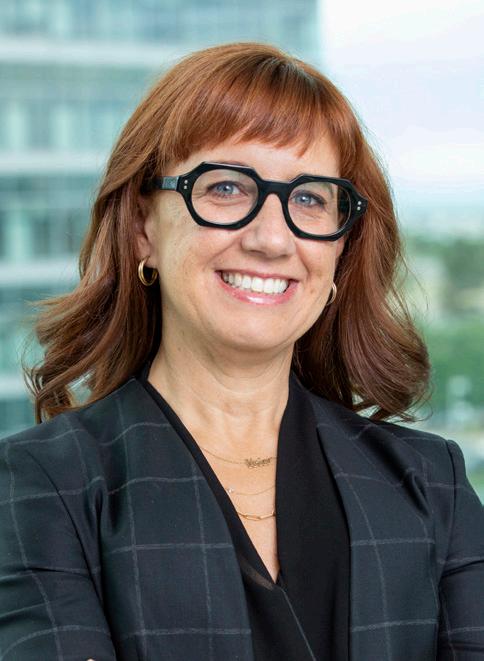1 minute read
Balancing Science and Medicine to Benefit Lung Cancer Patient Care
Next Article
Ross Camidge, MD, PhD, was recognized as a highly cited researcher, underscoring his commitment to multidisciplinary, holistic care that bridges the lab and the clinic.
By Rachel Sauer
When his mom fell off a ladder on New Year’s Eve a number of years ago, after deciding it was as good a time as any to clean the leaves from her gutters, one of the first things Ross Camidge, MD, PhD, did after she got home from the hospital was to take her pulse.
Perhaps because it was one of the rowdiest nights of the year in Edinburgh, Scotland, she had been met in the emergency room with a bit of a wink–“Had a little too much, did you?”–and sent for immediate surgery to repair her broken hip.
“At no point was she asked why she fell off the ladder,” Camidge recalls. “So, when I talked with her after I’d traveled up from London and she said she didn’t remember falling, I took her pulse and there were these huge gaps in her pulse rate. The same day I contacted her primary doctor and suggested that she needed a pacemaker as soon as possible.”
Of all the questions that have steered and shaped his career, “Why is this happening?” has carried a profound weight, guiding not only how Camidge treats and connects with patients, but how he delves into research that aims to answer the fundamental questions of why: Why are these side effects occurring? Why is the tumor behaving this way? Why is one patient responding while another one isn’t?
Camidge, a University of Colorado Cancer Center member and the Joyce Zeff Chair in Lung Cancer Research in the CU School of Medicine, was recently named a Clarivate highly cited researcher in the field of clinical medicine, the sixth time he has received this recognition. Analytics company Clarivate annually names highly cited researchers–the top 1% of people worldwide–who have “demonstrated significant and broad influence reflected in their publication of multiple highly cited papers over the last decade.”
Since beginning his medical career as a student at the University of Oxford, and his research career at the University of Cambridge, Camidge has pursued a holistic approach to diagnosing and treating cancer. It is one that balances science and humanity, recognizing that at the center of all cancer research outcomes are individuals living with a life-altering diagnosis.










